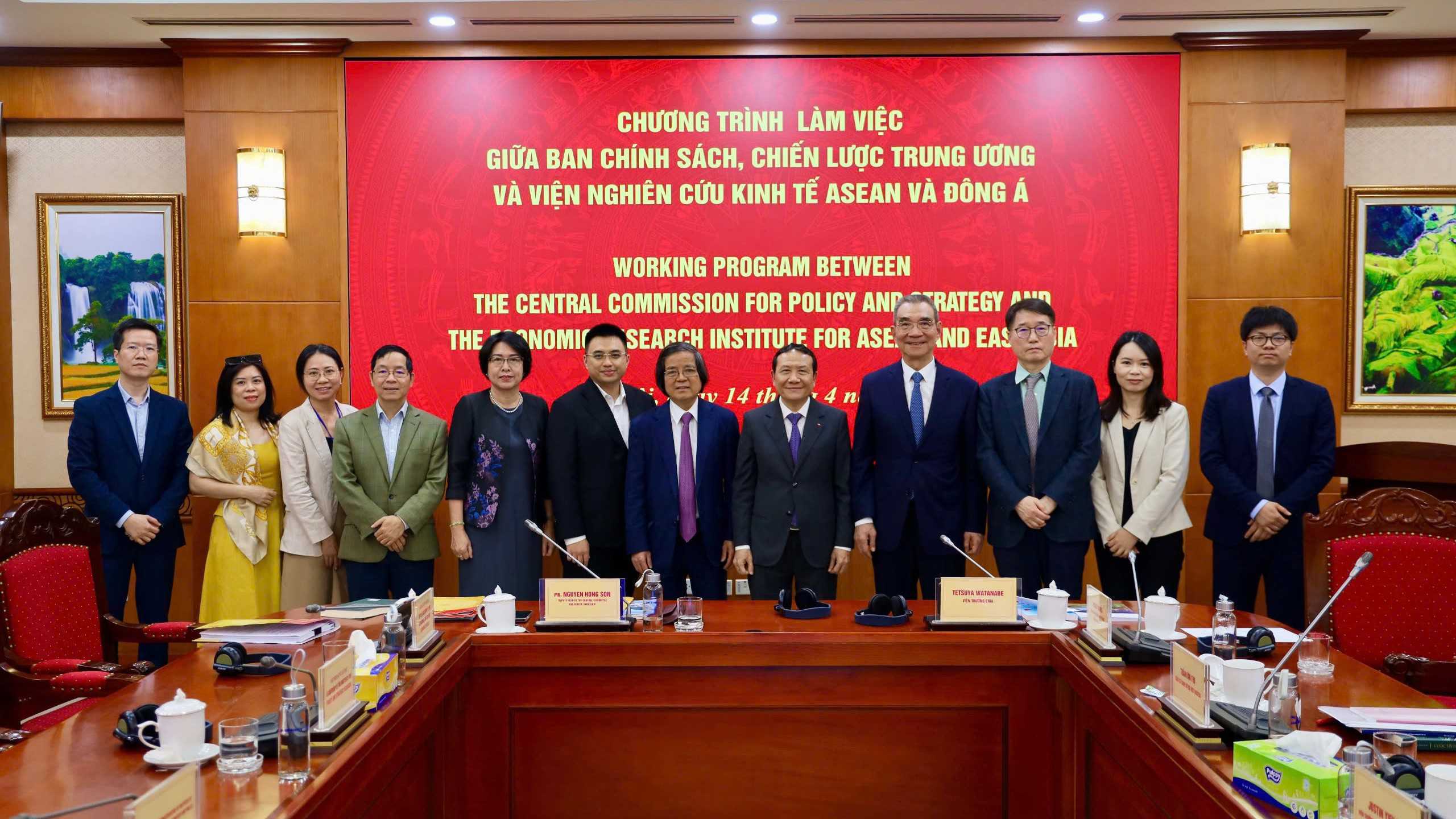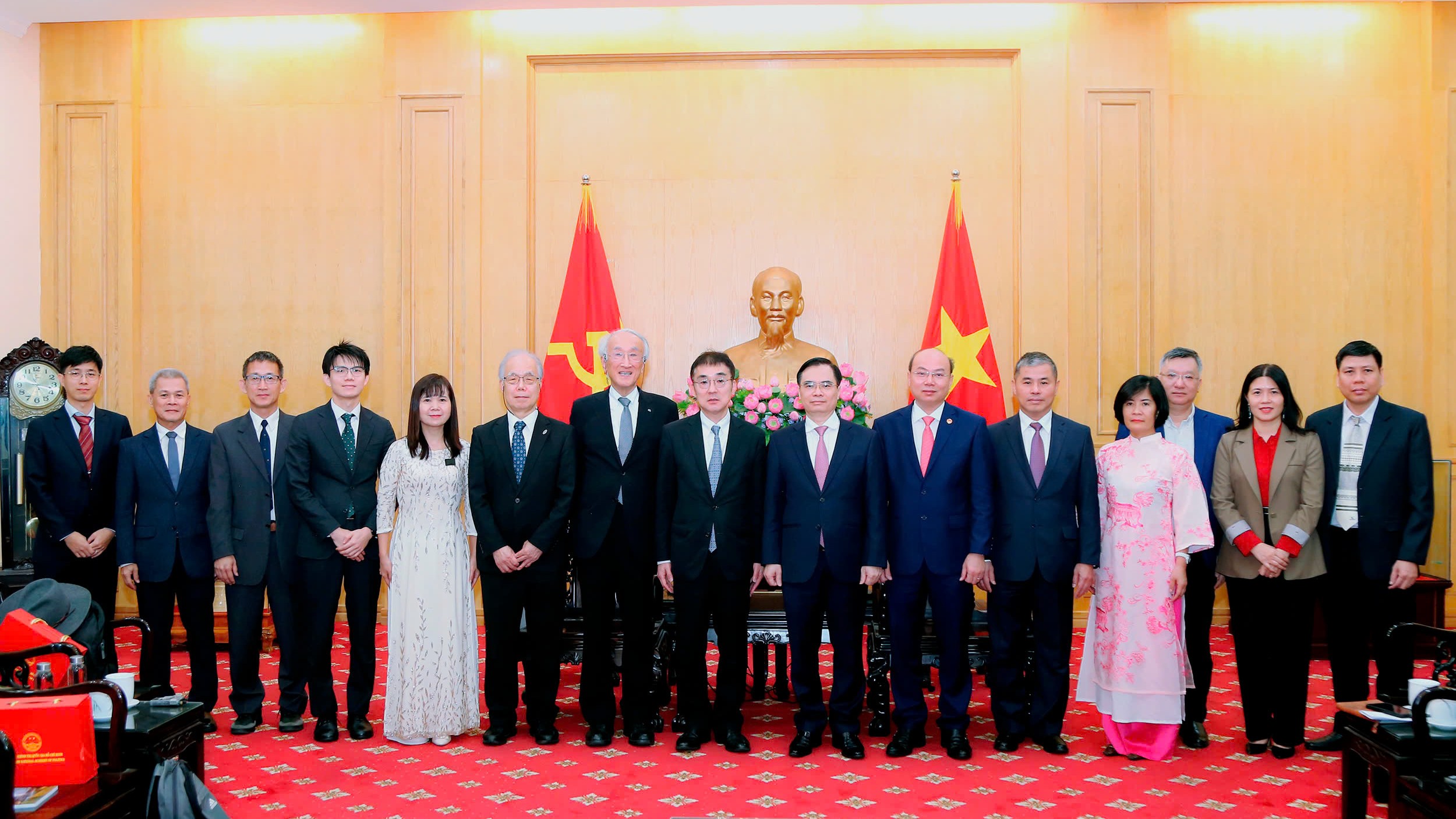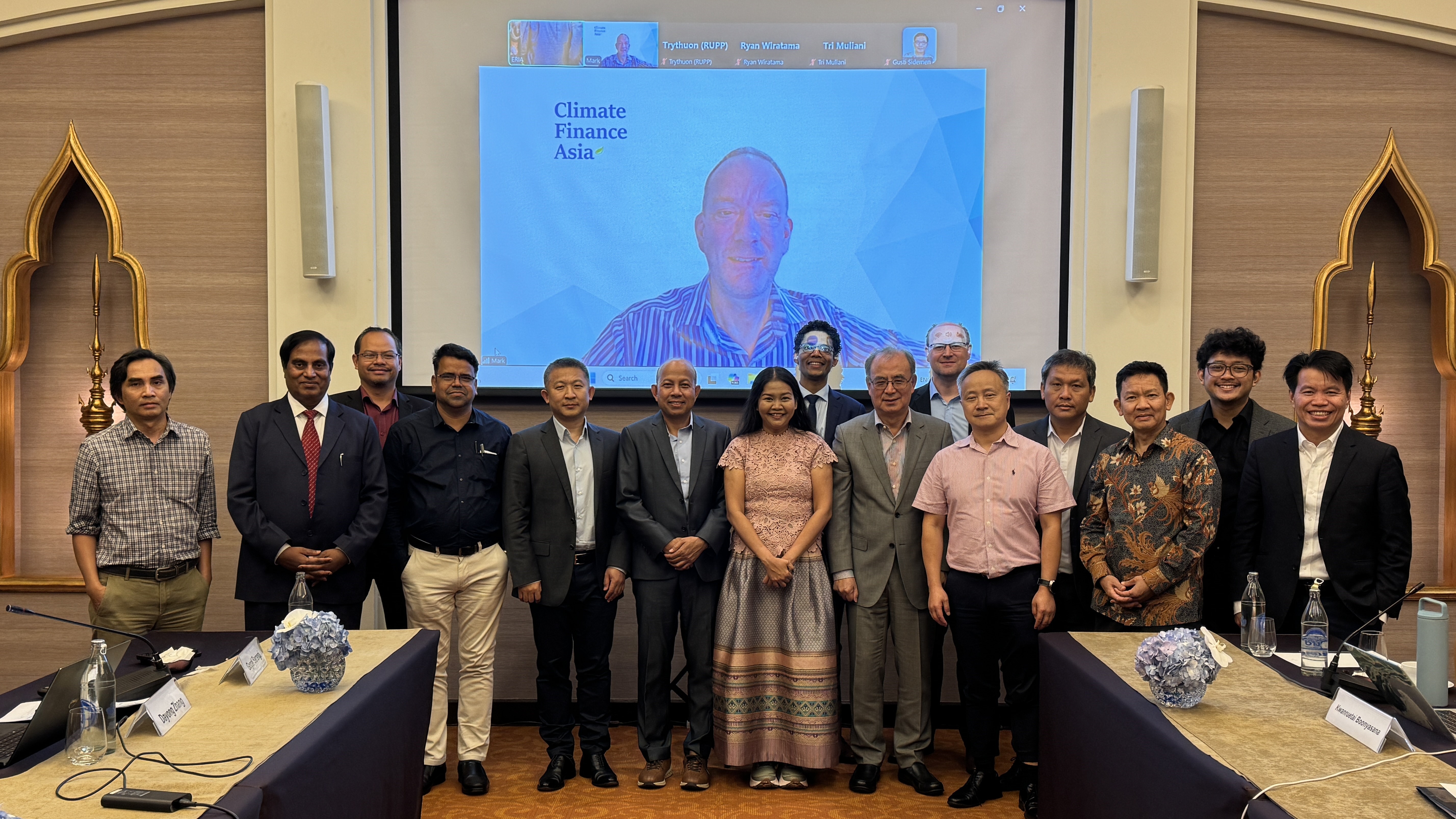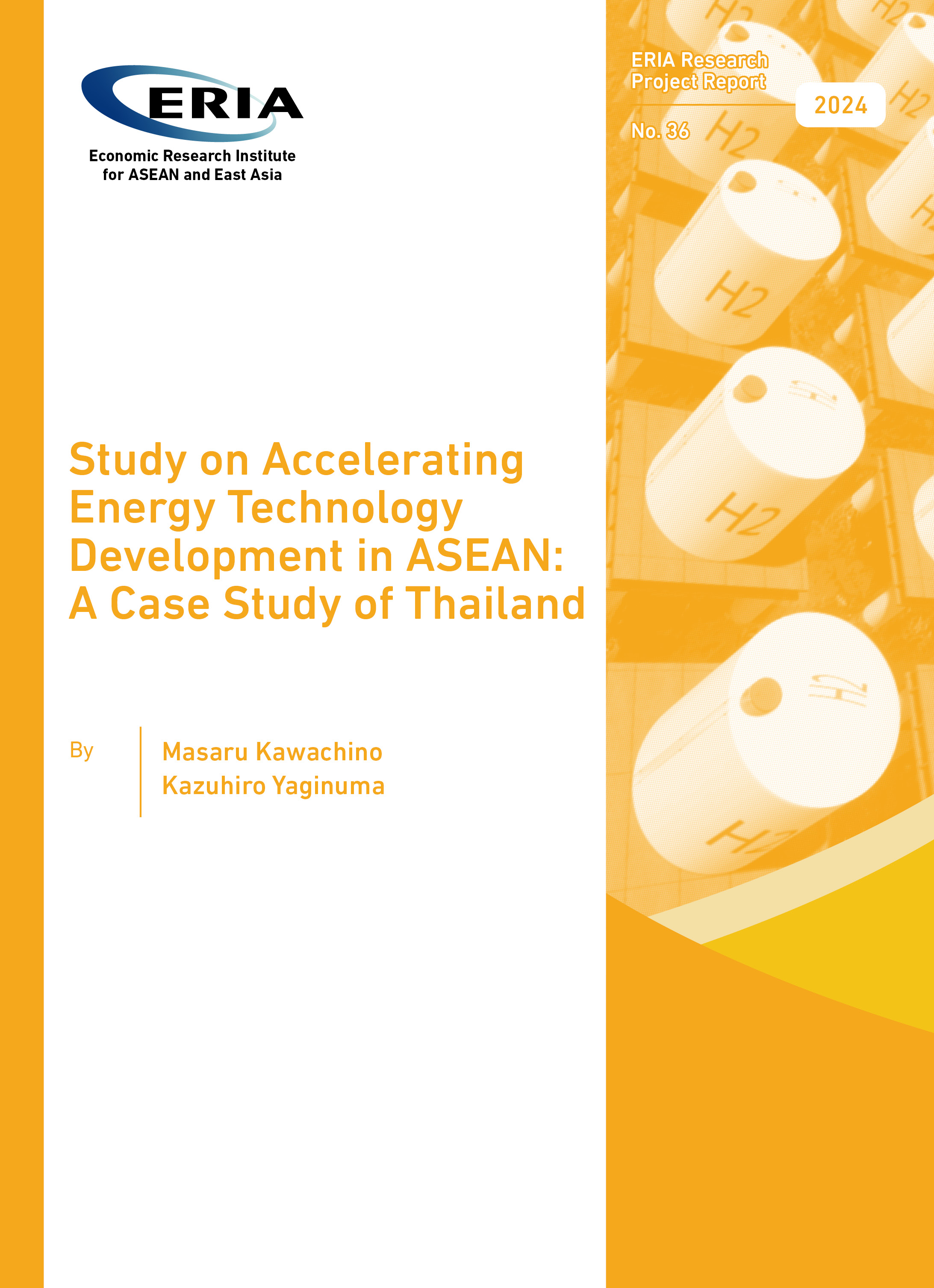ERIA–CPSC Workshop Highlights Pathways to Viet Nam’s High-Income and Net-Zero Future
Share Article:
Print Article:
Hanoi, 14 April 2025: ERIA, in collaboration with the Central Policy and Strategy Commission (CPSC) of the Communist Party of Viet Nam, convened a high-level workshop in Hanoi to support the country’s long-term goals of attaining high-income status by 2045 and achieving carbon neutrality by 2050.
During the event, ERIA President Tetsuya Watanabe was received by H.E. Tran Luu Quang, Chairman of the CPSC, and formally presented the preliminary findings of two major studies:
- Viet Nam’s Development Model and Policies for Achieving Two-Digit Growth: Lessons from China, Japan, and the Republic of Korea
- Viet Nam’s Transition Pathways: Technology and Innovation for Carbon Neutrality by 2050
The workshop brought together senior policymakers and international experts. In his opening remarks, President Watanabe expressed appreciation for the strong partnership with the CPSC and reaffirmed ERIA’s commitment to supporting Viet Nam’s dual transition. He emphasised that the two studies offer timely, practical insights to guide the country’s path toward sustainable and inclusive growth.
H.E. Tran Luu Quang welcomed ERIA’s policy recommendations, particularly on strategies for achieving two-digit economic growth and managing the energy transition. He noted the importance of considering nuclear power in formulating optimal energy policies.
The first study outlines strategic reforms Viet Nam could implement – drawing on the experiences of China, Japan, and the Republic of Korea – to enhance productivity, promote innovation, strengthen institutions, and drive dynamic industrialisation. It introduces the ‘Hanoi Consensus,’ a Viet Nam-specific roadmap that adapts East Asian best practices to the local context. Key contributors included Professor Justin Yifu Lin (Peking University), Professor Lee Keun (Seoul National University), and Professor Tran Van Tho (Waseda University), who shared lessons from their respective countries.
The second study, developed with support from the International Energy Agency (IEA), provides a comprehensive strategy for Viet Nam’s energy transition. It addresses the expansion of renewable energy, power grid modernisation, and the development of emerging technologies such as carbon capture, hydrogen, and nuclear energy. Nobuo Tanaka, Executive Director Emeritus of the IEA, shared insights on the role of nuclear energy in Viet Nam’s decarbonisation journey, underscoring the need for strong leadership, consistent policy, and regional cooperation.
Both ERIA and the CPSC expressed confidence that the study findings would contribute meaningfully to the Commission’s policy advisory work and deepen ERIA–Viet Nam collaboration in pursuit of shared development and climate goals.

.jpg)






